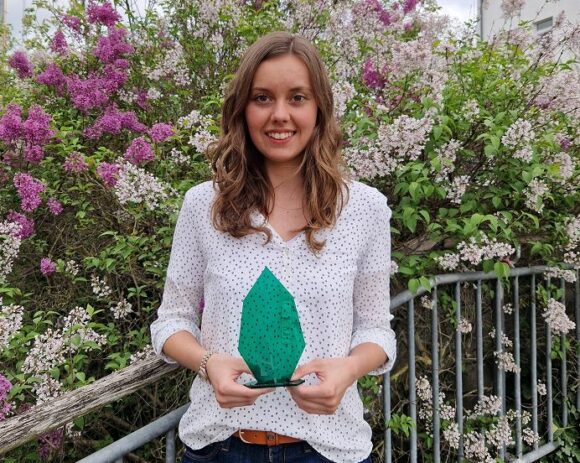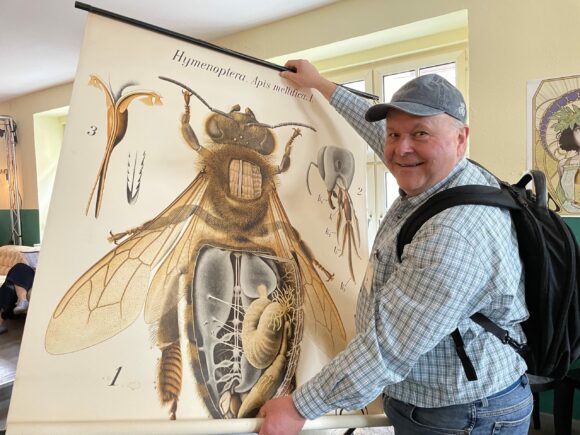How can you try out how artificial intelligence works? How can you “tinker” with it yourself and test which effects change and how? The new Competence Center for Applied AI at Hof University of Applied Sciences offers a new toolbox for this purpose, which is aimed both at interested people without IT studies and at scientists from the field of computer science. The director of the new center, Prof. Dr. René Peinl, explains who else is involved

at Hof University of Applied Sciences (iisys); Image: Hof University of Applied Sciences;
Professor Peinl, you are the head of the new AI User Center and you are doing research on AI yourself. What exactly is this center about? And what do you expect from it?
“The goal is to make AI, or more precisely the application of machine learning methods, more accessible. It is primarily aimed at interested people without a computer science degree who want to gain initial experience with AI-based services. But it is also intended to help computer scientists who are deeper in the subject matter not to waste unnecessary time with infrastructure problems. The goal is to provide a hybrid of Huggingface (collection of open source AI models and datasets) and Google Colab (web-based development environment for AI models).”
Who exactly is the center for? Who are the target audiences? Can external parties also participate?
“The user center is explicitly aimed at students as well as scientific staff, teachers and interested companies. Currently, even students from Bayreuth University are working with our hardware and software platform as part of a joint project with the university.”
The center is divided into two areas: Application on the one hand, and Technology on the other. How does this division come about?
“As is usually the case in computer science, you need experts from the technical domain that the application is about and experts who are proficient in the technology or fundamentals used. Good results can only be achieved by working together. In addition to the hardware and software platform that we provide, the competence center also consists of experts from these two areas, who are supposed to help interested parties take the first steps in less time than they would be able to on their own.”
Which topics are dealt with there and according to which criteria?
“In machine learning, a distinction is made between the training phase and the application of the fully trained models (inferencing). We want to support both. The application phase is about finding out, for example, whether there are pre-trained models that already deliver sufficiently good results for one’s own use case without further special training, or finding out what can be done with AI in the first place. If there are promising approaches, but they still lack the decisive bit of accuracy to be usable in everyday life, then the models can be specialized with your own data (finetuning). We also provide support in this area. However, this usually requires a computer scientist on the side of the application partner. However, data collection and preparation can also be done by subject matter experts, if necessary.”

Who else is involved besides you?
“The iisys research groups of Professors Göbel, Groth, Scheidt and Peinl, as well as Prof. Weber on the interface of law and IT, are currently active in the technology area. The competence is extended by experts from the faculty of computer science, such as Professor Leuoth and Prof. Spangenberg. Active in the application area are the research groups of Professors Wolff (Ing.), Wagener, Wengler and Riedel (BWL).”
Where do you see the Competence Center for Applied AI in one year?
“We want to continuously expand. Currently, an expansion of the hardware platform is being procured. This will give us an additional 50% computing power. The software stack should also be further expanded to cover additional use cases, esp. the quick and easy viewing, analysis and preparation of data for AI training incl. legal information about the licenses of the data. Finally, human expertise should also continue to grow, which we will succeed in doing through joint projects with application partners, among other things.”
Thank you for the interview!
To the Center for Artificial Intelligence at Hof University of Applied Sciences…







